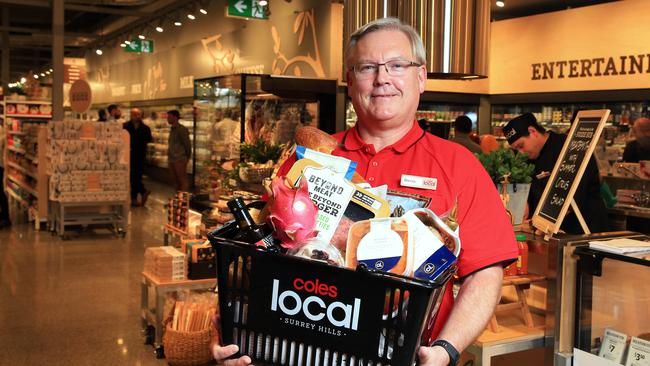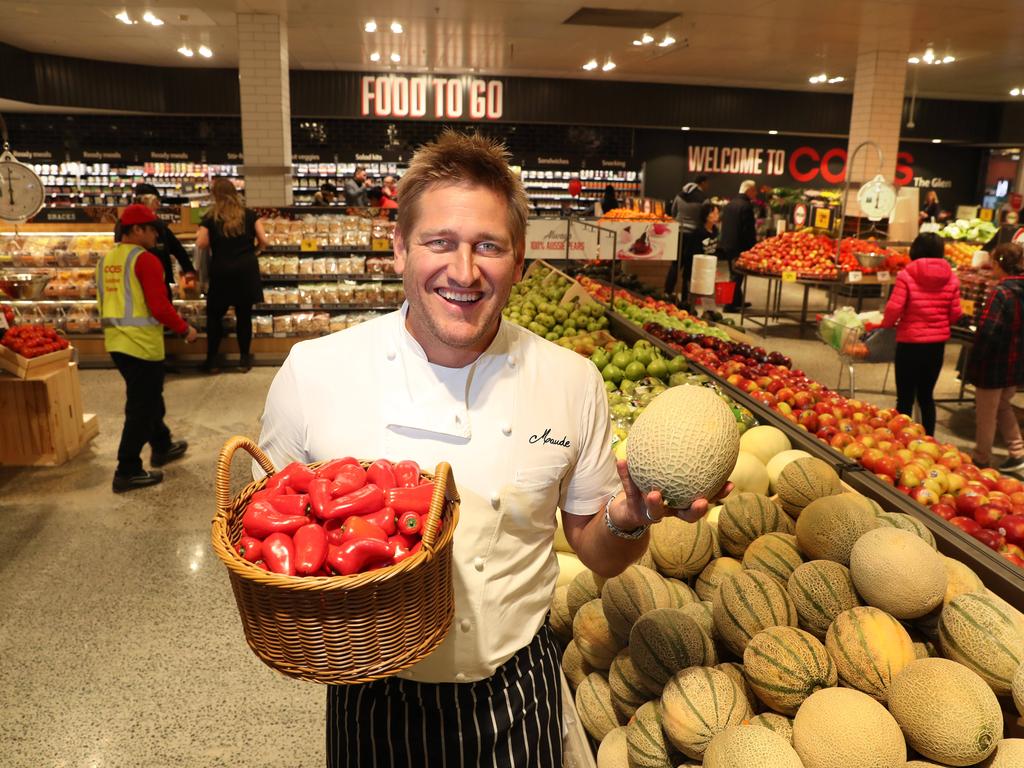Coles earnings and sales shrink, but pays special dividend
Coles shares rose even after profit slipped 9.1pc and sales fell, as the supermarket giant handed investors a special dividend

Supermarket giant Coles has unveiled a 9.1 per cent slide in its full-year net profit to $1.434 billion, as total shrank by 1.7 per cent to $38.46 billion.
It’s the retailer’s third consecutive decline in earnings and its slimmest sales result since 2015.
The 9.1 per cent fall in full-year net profit was partly generated by the loss of the Kmart, Target and Officeworks businesses which stayed with Wesfarmers when Coles was spun out, with parts of their profits previously included in Coles results.
However there was some good news for investors with Coles, in its first year as an independent public company following its demerger from parent Wesfarmers late last year, issuing a special dividend to shareholders.
Coles said it would pay a total dividend of 35.5 cents per share, made up of a final dividend of 24 cents per share and a special dividend of 11.5 cents per share.
Coles shares were this morning up 53 cents, or 4 per cent, at $13.77, after going as high as $13.84 in early trade.
Coles announced that total sales hit $38.46 billion, its thinnest sales performance since 2015.
Earnings before interest and tax were $1.466 billion, down 0.9 per cent, and the third year in a row that earnings have fallen and the smallest earnings result in more than six years.
The retailer said growth in supermarkets and liquor was offset by lower sales revenue in Coles Express, driven by a decline in fuel volumes and the move to a commission- agent model under the new alliance petrol sites agreement, effective from March.
Under the new arrangement, Coles no longer recognises fuel sales revenue but is entitled to commission from fuel sold at alliance sites.
The full-year result also includes provisions of $145.8 million linked to redundancies and lease exit costs for a number of its distribution centres.
Coles’ online sales rose by 30 per cent to generate $1.1 billion in sales revenue. Online also rang up its first operating profit as a division in fiscal 2019.
Coles chief executive Steven Cain said Coles had delivered a solid performance in the face of a rapidly changing retail landscape.
“It has been a year of substantial change for Coles following the successful demerger and ASX listing from Wesfarmers in November 2018,” he said.
“As highlighted at our investor day in June, consumer behaviours are changing faster than ever, we are heading into the most competitive period in Coles’ history, and there are significant industry wide cost headwinds.
“With the return to profit growth in our core supermarkets division we have made a solid start to our four year transformation program. Delivery of our sales growth strategy and the $1 billion smarter selling program will be critical to group EBIT growth.”
Coles said its earnings from ongoing operations, excluding the sale of its hotels business and the petrol deal with Viva, were $1.325 billion, above analysts’ consensus forecasts.
The supermarket recorded like-for-like sales growth in the fourth quarter of 2.2 per cent, which is the 47th consecutive quarter of positive growth and at the upper end of the forecast provided at the Coles strategy day in June for comparative sales growth to be between 1.5 per cent and 2.2 per cent.
It is the equal strongest quarter since the fourth quarter of 2016 for Coles.
The company said the 0.9 per cent slide in group EBIT from continuing operations was driven by lower fuel volumes at Coles Express, largely offset by EBIT growth in supermarkets from higher sales and improved gross margin.
Net cash flows from operating activities from continuing operations of Coles increased by 19.1 per cent to $2.275 billion, largely driven by the one-off receipt of $137 million from Viva Energy as part of the petrol deal, and a tax refund timing benefit associated with the exit from the Wesfarmers’ Australian income tax consolidated group prior to demerger.
For its core supermarkets arm, sales revenue was $30.9 billion for fiscal 2019, an increase of 3.2 per cent on the prior year, with comparable sales growth of 2.7 per cent. For the fourth quarter, supermarkets sales revenue increased by 3 per cent and comparable sales growth was 2.2 per cent relative to the prior corresponding period, the 47th consecutive quarter of positive comparable sales growth.
Revenue growth was driven by online, new stores and the successful collectables Little Shop 2 campaigns and Fresh Stikeez.
Inflation also started to increase, impacted by severe drought conditions in Australia.
For the full year, comparable sales growth was largely driven by basket size, although transaction growth also showed signs of improvement since the beginning of the second quarter.
At its liquor arm, which takes in chains Vintage Cellars, First Choice and Liquorland, revenue was $3.1 billion for the year, an increase of 1.9 per cent on the prior year with comparable sales growth of 1.2 per cent. The performance in liquor was positively impacted by the benefit of the First Choice Liquor Market rollout during the year and growth in online, partially offset by moderating growth in the broader retail liquor market.
Liquorland continued to grow during the year, albeit at a lower rate as its renewal program neared completion.







To join the conversation, please log in. Don't have an account? Register
Join the conversation, you are commenting as Logout